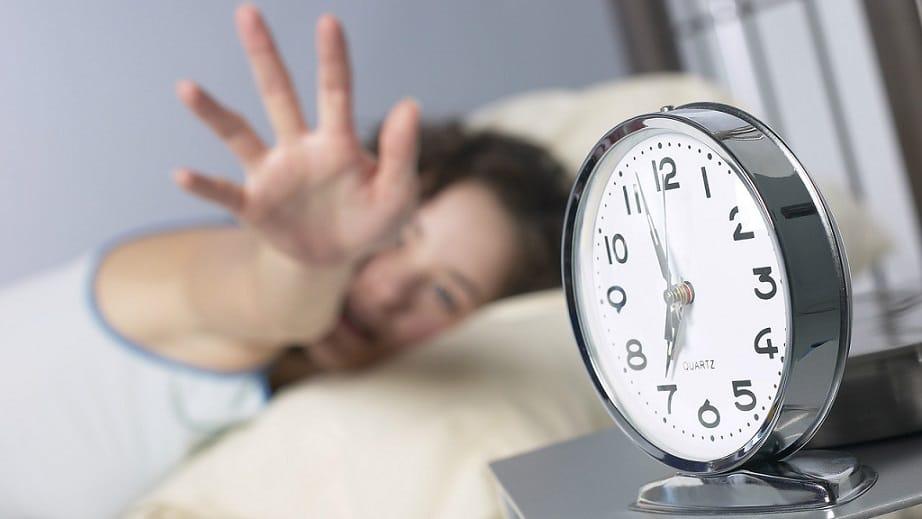Дата публикации: 22.06.2017
Consider these horrible words: “Monday”, “alarm clock”, “boss” ― if you are an “owl”, facing these words in one sentence is worse than being shot. People of this chronotype have hard time living in the world made for “larks”. Inability to unleash their potential often leads night people to depression.
It’s hard to call an “owl’s” morning good if it begins before noon, but night people have to wake up at the same time as early-risers do. That is why they are constantly late for work, feel sleepy and generally look unseemly in the morning. But having fully woken up around lunch, night people are puzzled to see their co-workers starting to feel tired. How can you synchronize with the “lark” world?



“Owls” are constantly late for work, feel sleepy and generally look unseemly in the morning, photo WEB
Of course, the best possible advice is to live according to your inner clock. It guarantees good health, emotional balance and perfect moods… Alas, the reality makes this task almost impossible to accomplish for “owls”. Everything from food markets to banks works in accord with the “lark” rhythm.
What can help night-birds to feel more comfortable in the broad daylight?
Your physical activity peaks at 6―7 p.m., so take advantage of it and have a workout. Visit a gym, a swimming pool, a tennis court. Maybe the physical exercise will help you fall asleep and render your day regimen slightly more comfortable.
It’s better to prepare your clothes in the evening, so upon waking up you won’t have to spend extra time, photo WEB
True “owls” are very few. As far as evolution is concerned, their life rhythm is unnatural because night is for predators ― humans would better sleep somewhere safe. In the primeval society people of this chronotype probably served as night guards, but they were a minority. As modern studies suggest, from 40 to 65 % of people are “owls”. Where have they come from?
Regrettable as it is, “owliness” is often a result of self-indulgence. The second factor turning a “lark” into an “owl” is surrounding. Its influence is especially strong in adolescence, when real life begins at night. Modern kids sometimes become “owls” unwillingly, when their nocturnal parents fail to organize the day properly for the child to go to bed in time and wake up easily next morning to go to school.
Regrettable as it is, “owliness” is often a result of self-indulgence, photo WEB
First of all, find out whether you are a true “owl”. Or maybe your nocturnal lifestyle is a result of a long-established habit? For that, take several days off, deactivate all your gadgets and go about your business measuredly. Let your body tire naturally and go to sleep when you want to. Watch your condition for three-four days — in absence of computers, social networks, work and urgent issues, do you really stay awake at 3 a.m.? If changes do occur, then maybe your “owliness” isn’t of a genetic nature, but caused by overconcern or poor time management.
Victoria Romanova, Moscow, Russia
Here can be your advertising!
Articles
02.04.2019
One calorie, two calories
Experts dispel the myth of the counting calories complexity for weight loss
25.07.2018
Water you can eat
Down with the plastic bottles! Ooho Capsules - a new word in the transportation of water
30.06.2017
Gluten-free life
Gluten intolerance ― a scourge of modern day
Дата публикации: 22.06.2017
Consider these horrible words: “Monday”, “alarm clock”, “boss” ― if you are an “owl”, facing these words in one sentence is worse than being shot. People of this chronotype have hard time living in the world made for “larks”. Inability to unleash their potential often leads night people to depression.
It’s hard to call an “owl’s” morning good if it begins before noon, but night people have to wake up at the same time as early-risers do. That is why they are constantly late for work, feel sleepy and generally look unseemly in the morning. But having fully woken up around lunch, night people are puzzled to see their co-workers starting to feel tired. How can you synchronize with the “lark” world?
“Owls” are constantly late for work, feel sleepy and generally look unseemly in the morning, photo WEB
Of course, the best possible advice is to live according to your inner clock. It guarantees good health, emotional balance and perfect moods… Alas, the reality makes this task almost impossible to accomplish for “owls”. Everything from food markets to banks works in accord with the “lark” rhythm.
What can help night-birds to feel more comfortable in the broad daylight?
Your physical activity peaks at 6―7 p.m., so take advantage of it and have a workout. Visit a gym, a swimming pool, a tennis court. Maybe the physical exercise will help you fall asleep and render your day regimen slightly more comfortable.
It’s better to prepare your clothes in the evening, so upon waking up you won’t have to spend extra time, photo WEB
True “owls” are very few. As far as evolution is concerned, their life rhythm is unnatural because night is for predators ― humans would better sleep somewhere safe. In the primeval society people of this chronotype probably served as night guards, but they were a minority. As modern studies suggest, from 40 to 65 % of people are “owls”. Where have they come from?
Regrettable as it is, “owliness” is often a result of self-indulgence. The second factor turning a “lark” into an “owl” is surrounding. Its influence is especially strong in adolescence, when real life begins at night. Modern kids sometimes become “owls” unwillingly, when their nocturnal parents fail to organize the day properly for the child to go to bed in time and wake up easily next morning to go to school.
Regrettable as it is, “owliness” is often a result of self-indulgence, photo WEB
First of all, find out whether you are a true “owl”. Or maybe your nocturnal lifestyle is a result of a long-established habit? For that, take several days off, deactivate all your gadgets and go about your business measuredly. Let your body tire naturally and go to sleep when you want to. Watch your condition for three-four days — in absence of computers, social networks, work and urgent issues, do you really stay awake at 3 a.m.? If changes do occur, then maybe your “owliness” isn’t of a genetic nature, but caused by overconcern or poor time management.
Victoria Romanova, Moscow, Russia
Here can be your advertising!
Articles
02.04.2019
One calorie, two calories
Experts dispel the myth of the counting calories complexity for weight loss
25.07.2018
Water you can eat
Down with the plastic bottles! Ooho Capsules - a new word in the transportation of water
30.06.2017
Gluten-free life
Gluten intolerance ― a scourge of modern day
Дата публикации: 22.06.2017
Consider these horrible words: “Monday”, “alarm clock”, “boss” ― if you are an “owl”, facing these words in one sentence is worse than being shot. People of this chronotype have hard time living in the world made for “larks”. Inability to unleash their potential often leads night people to depression.
It’s hard to call an “owl’s” morning good if it begins before noon, but night people have to wake up at the same time as early-risers do. That is why they are constantly late for work, feel sleepy and generally look unseemly in the morning. But having fully woken up around lunch, night people are puzzled to see their co-workers starting to feel tired. How can you synchronize with the “lark” world?
“Owls” are constantly late for work, feel sleepy and generally look unseemly in the morning, photo WEB
Of course, the best possible advice is to live according to your inner clock. It guarantees good health, emotional balance and perfect moods… Alas, the reality makes this task almost impossible to accomplish for “owls”. Everything from food markets to banks works in accord with the “lark” rhythm.
What can help night-birds to feel more comfortable in the broad daylight?
Your physical activity peaks at 6―7 p.m., so take advantage of it and have a workout. Visit a gym, a swimming pool, a tennis court. Maybe the physical exercise will help you fall asleep and render your day regimen slightly more comfortable.
It’s better to prepare your clothes in the evening, so upon waking up you won’t have to spend extra time, photo WEB
True “owls” are very few. As far as evolution is concerned, their life rhythm is unnatural because night is for predators ― humans would better sleep somewhere safe. In the primeval society people of this chronotype probably served as night guards, but they were a minority. As modern studies suggest, from 40 to 65 % of people are “owls”. Where have they come from?
Regrettable as it is, “owliness” is often a result of self-indulgence. The second factor turning a “lark” into an “owl” is surrounding. Its influence is especially strong in adolescence, when real life begins at night. Modern kids sometimes become “owls” unwillingly, when their nocturnal parents fail to organize the day properly for the child to go to bed in time and wake up easily next morning to go to school.
Regrettable as it is, “owliness” is often a result of self-indulgence, photo WEB
First of all, find out whether you are a true “owl”. Or maybe your nocturnal lifestyle is a result of a long-established habit? For that, take several days off, deactivate all your gadgets and go about your business measuredly. Let your body tire naturally and go to sleep when you want to. Watch your condition for three-four days — in absence of computers, social networks, work and urgent issues, do you really stay awake at 3 a.m.? If changes do occur, then maybe your “owliness” isn’t of a genetic nature, but caused by overconcern or poor time management.
Victoria Romanova, Moscow, Russia
Here can be your advertising!
Articles
02.04.2019
One calorie, two calories
Experts dispel the myth of the counting calories complexity for weight loss
25.07.2018
Water you can eat
Down with the plastic bottles! Ooho Capsules - a new word in the transportation of water
30.06.2017
Gluten-free life
Gluten intolerance ― a scourge of modern day
